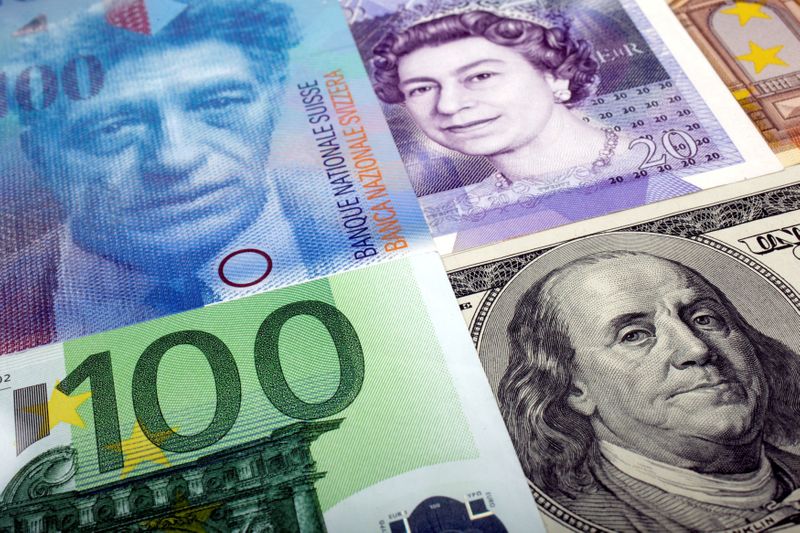By John McCrank
NEW YORK (Reuters) - The U.S. dollar eased off of a fresh 16-month high on Wednesday, while the euro remained on its back foot as investors adjusted central bank tightening odds amid rising pricing pressures, with the U.S. Federal Reserve seen hiking rates as early as mid-2022.
The dollar index, which measures the currency against a basket of six rivals, slipped 0.101% to 95.846 after earlier touching 96.266 for the first time since mid-July 2020.
Versus the yen, the greenback hit a 4-1/2-year high and tested the $1.12 level against the euro, helped by robust U.S. retail sales data and hawkish comments from Fed policymakers, which contrasted with dovish remarks from the head of the European Central Bank.
"The market is now starting to understand that you're going to have divergent themes in FX," said Edward Moya, senior market analyst at FX broker Oanda. "I think that you're in for a choppy period ... you're continuing to see the markets fixate over inflation," he said.
Money markets are now pricing in a high probability of a Fed rate increase in June, followed by another in November. CME data suggests a 50% probability of a 25 bps rate hike by July 2022.
"The market assumes that the key rate will be hiked in the second half of next year," said Antje Praefcke, an FX strategist at Commerzbank (DE:CBKG). "For me too, the dollar remains a 'buy on dips' short-term."
The dollar soared last week after data showed U.S. consumer prices rose in October at the fastest rate since 1990, and that momentum continued into Tuesday when a report showed retail sales rose more than expected last month.
Elsewhere, data on Wednesday showed inflation in October hit a 10-year high in Britain and an 18-year high in Canada.
The pound climbed to a one-week high versus the dollar and a 21-month high against the euro after the British data, which boosted expectations of a rate hike by the Bank of England's Monetary Policy Committee (MPC) as early as next month. [GBP/]
"Although there are still a number of MPC members who take the position that inflation is transitory, the cards now seem stacked in favour of a hawkish turn from the central bank in December," said Giles Coghlan, chief analyst at HYCM.
The Canadian dollar eased, as the inflation numbers were in line with forecasts, and as oil prices fell, due in part to the strong U.S. dollar.
The greenback rose as far as 114.975 yen, its highest level since March 2017, before retreating to 114.135 yen.
The euro was last down 0.07% at $1.1312.

In cryptocurrencies, bitcoin traded around $60,000, after dipping below that level on Tuesday for the first time this month.
Graphic: World FX rates https://graphics.reuters.com/GLOBAL-CURRENCIES-PERFORMANCE/0100301V041/index.html